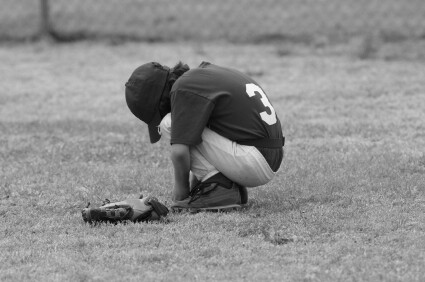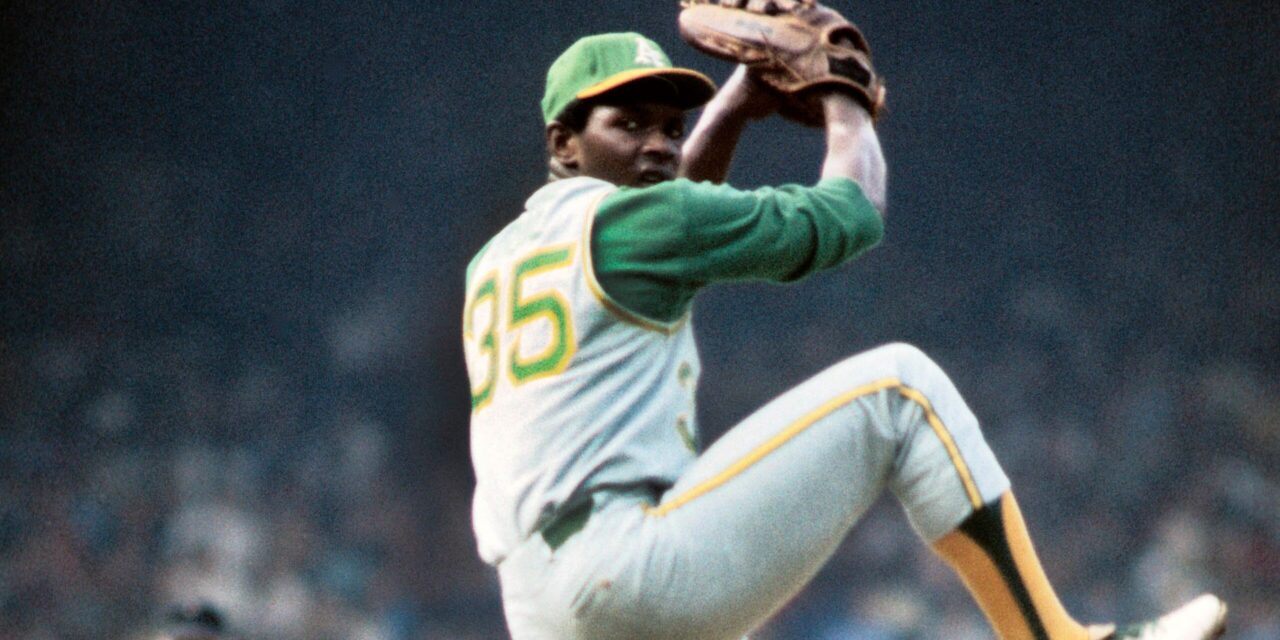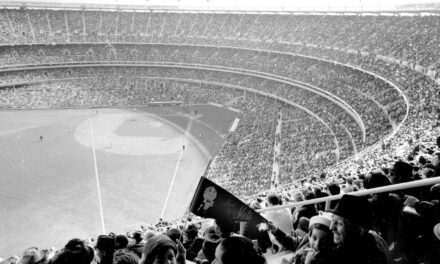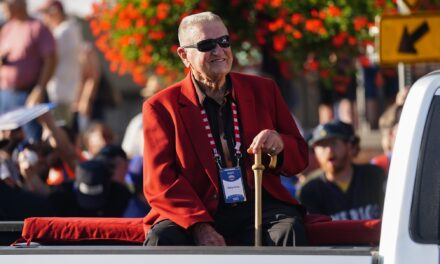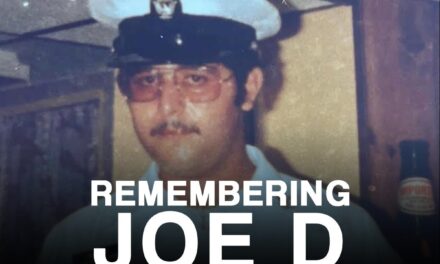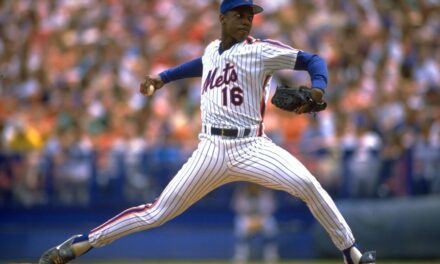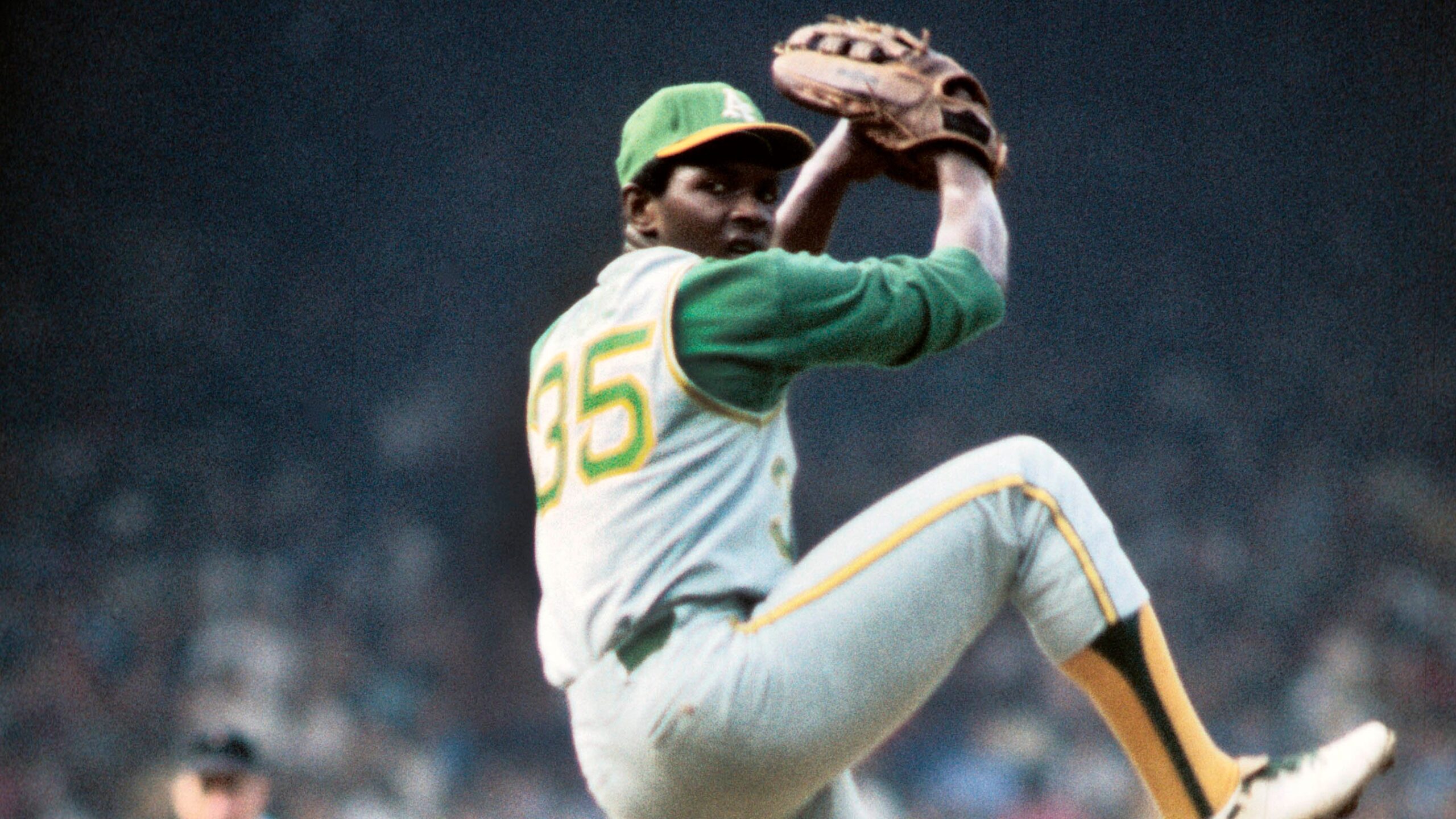
Malcolm Emmons, USA Today
The baseball world lost a former pitcher and dynamic personality on May 6, when former Oakland Athletic, San Francisco Giant, and Kansas City Royal Vida Blue passed away in the East Bay Area of Northern California. He was 73 years old.
Blue made his major league debut in July of 1969, making 12 appearances. He returned in 1970 to make six starts. In his first, he one-hit the Kansas City Royals (Pat Kelly recorded the only Royals hit), winning the game 3-0. He did even better in his second start, tossing a no-hitter against the Minnesota Twins, allowing just one base runner on a walk. That set him up for his outstanding 1971 season.
In 1971, Blue went 24-8 with a 1.82 ERA. He threw eight shutouts that season, striking out 301 batters. He won the rare combination of the Cy Young and MVP awards for his efforts in 1971, at the time joining just the Tigers’ Denny McLain, the Cardinals’ Bob Gibson, and the Dodgers’ Sandy Koufax and Don Newcombe to achieve the feat. Blue started the 1971 All Star game for the American League, at 21 years old.
Blue was not afraid to stand his ground and speak his mind, particularly when it came to A’s owner Charlie Finley. After his stellar 1971 season, Blue and Finley could not agree on a contract, so the pitcher held out and missed some of the 1972 season, appearing in only 25 games. Things got worse for Finley and Blue after the 1976 season, which saw Blue post an 18-13 record with a 2.35 ERA. Once again embroiled in a contract dispute, Blue said of Finley, “I hope the next breath Charlie Finley takes is his last. I hope he falls flat on his face and dies of polio.”
Finley tried to trade Blue twice, only to have the deals voided by commissioner Bowie Kuhn, who invoked the best interests of baseball clause, citing the A’s would be aiding teams (the Yankees in 1976 and Reds in 1977) that were already good, and receiving little in return.
The Mets crossed paths with Blue twice while he was with Oakland, when he started two games of the 1973 World Series (both won by New York). Blue started Game 2, with Oakland already leading the series 1-0. Trailing 2-0 in the game, the Mets got to Blue in the second inning, when Cleon Jones homered, putting the Mets on the board, though they still trailed by a 2-1 score. With Oakland ahead 3-1, Wayne Garrett went yard in the third, and then the Mets scored two off Blue (who left the game, responsible for runners on base) in the sixth on RBIs by Don Hahn and Bud Harrelson. The Mets would win the game in 12 innings.
Blue started Game 5 at Shea Stadium with the series tied a two games apiece. In the bottom of the second inning, John Milner drove in Jones with a single. In the bottom of the sixth, Hahn tripled in Jerry Grote. The Mets led 2-0, and that would be the final score. New York was up three games to two heading to Oakland, but the guys from Flushing lost the next two games and the series.
Blue finished his career with a 209-161 record over 17 seasons. He struck out 2,175 batters, walking 1,185. He posted an ERA+ of 108 for his career, and kept the ball in the park, allowing just over one home run per game. In an era where pitchers did not throw as hard as they do today, Blue’s average fastball was 94 mph, and he recorded pitches as fast as 100 mph. He was predominantly a country hardball pitcher, throwing mostly fastballs, mixing in a changeup and curve. Pete Rose said that Blue threw harder than any left-handed pitcher he ever faced.
Blue, who worked in the San Francisco Giants’ television booth after retiring in 1987, was involved in charity work, going to Vietnam with Bob Hope at one point to entertain American troops. Blue was suspended for the 1984 season for attempting to purchase cocaine, along with teammates Willie Wilson, Jerry Martin, and Willie Aikens.
RIP to Vida Blue, who brought a live fastball, flair for pitching, and outspoken style to MLB in the early and mid-1970s.
